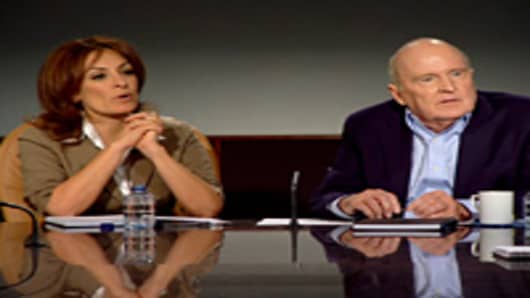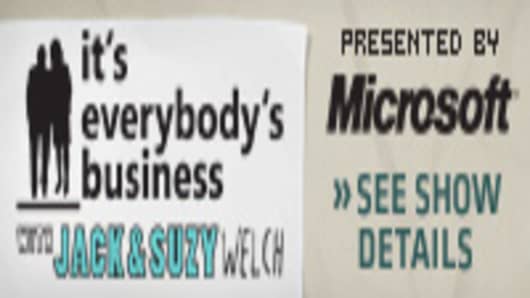Jack and Suzy Welch recently dropped in on a few Fortune 500 companies to work with their top executives. There, the former General Electric CEO and his wife, a noted business journalist and best-selling author, engaged company leaders in their famous “work-out” sessions. It was all caught on camera and became the basis for CNBC’s new series “It’s Everybody’s Business with Jack & Suzy Welch.”
Jack and Suzy sat down with CNBC to talk about their core leadership principles, the lessons they’ve learned from work-outs, and how executives around the globe can implement these business basics to make their companies more competitive. Here, they share their insights:
Q: Executives are used to doing certain things a certain way, and sometimes they resist change. How do you get people like that to embrace change?
Jack: Look, in order to get change in a company, you’ve got to get a message out, as to what’s in it for the company, and most importantly, what’s in it for the people you’re asking to change. Too many people talk about change, for change’s sake.
Suzy: In the show, each company has people with entrenched interests. And they really didn’t want to change. They came to the table saying, this is the way it should be, there is no need for change, or the change should be the way I want the change to be. And the challenge was to get everybody to a place where the change was right for the whole organization. That was the real challenge.




 Email us:
Email us: